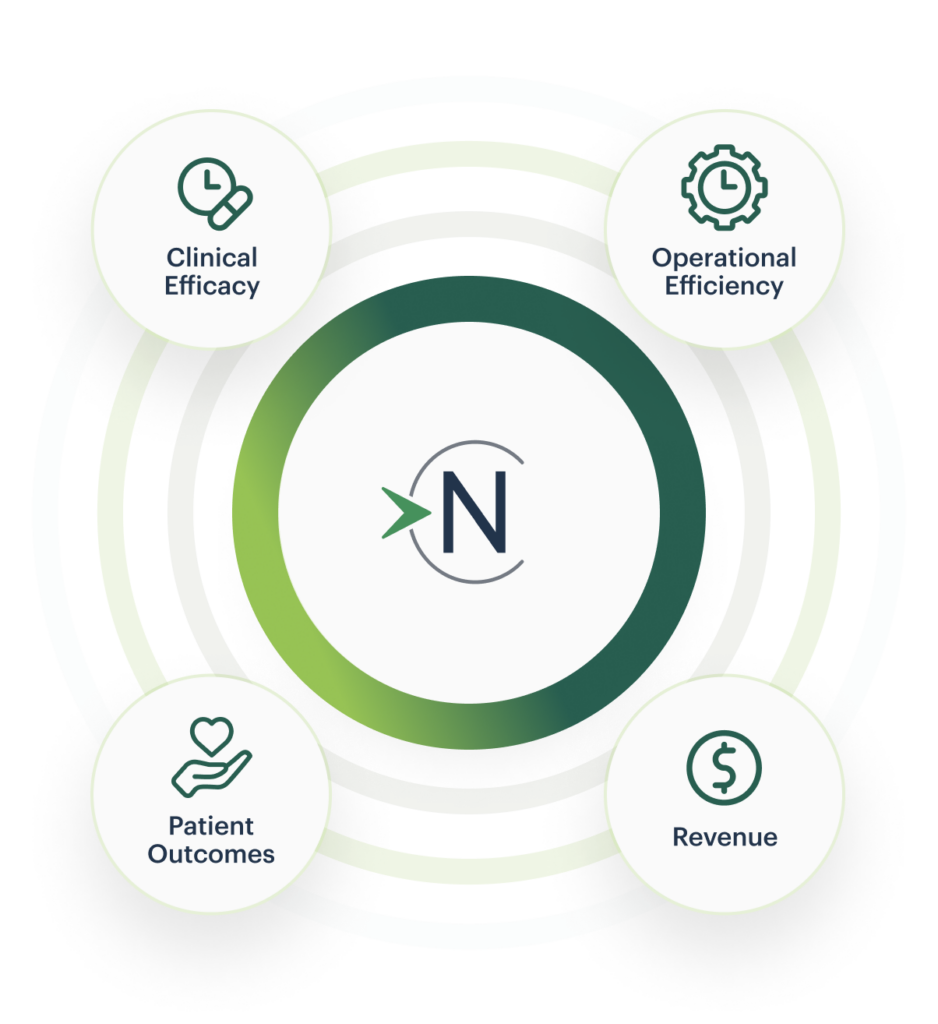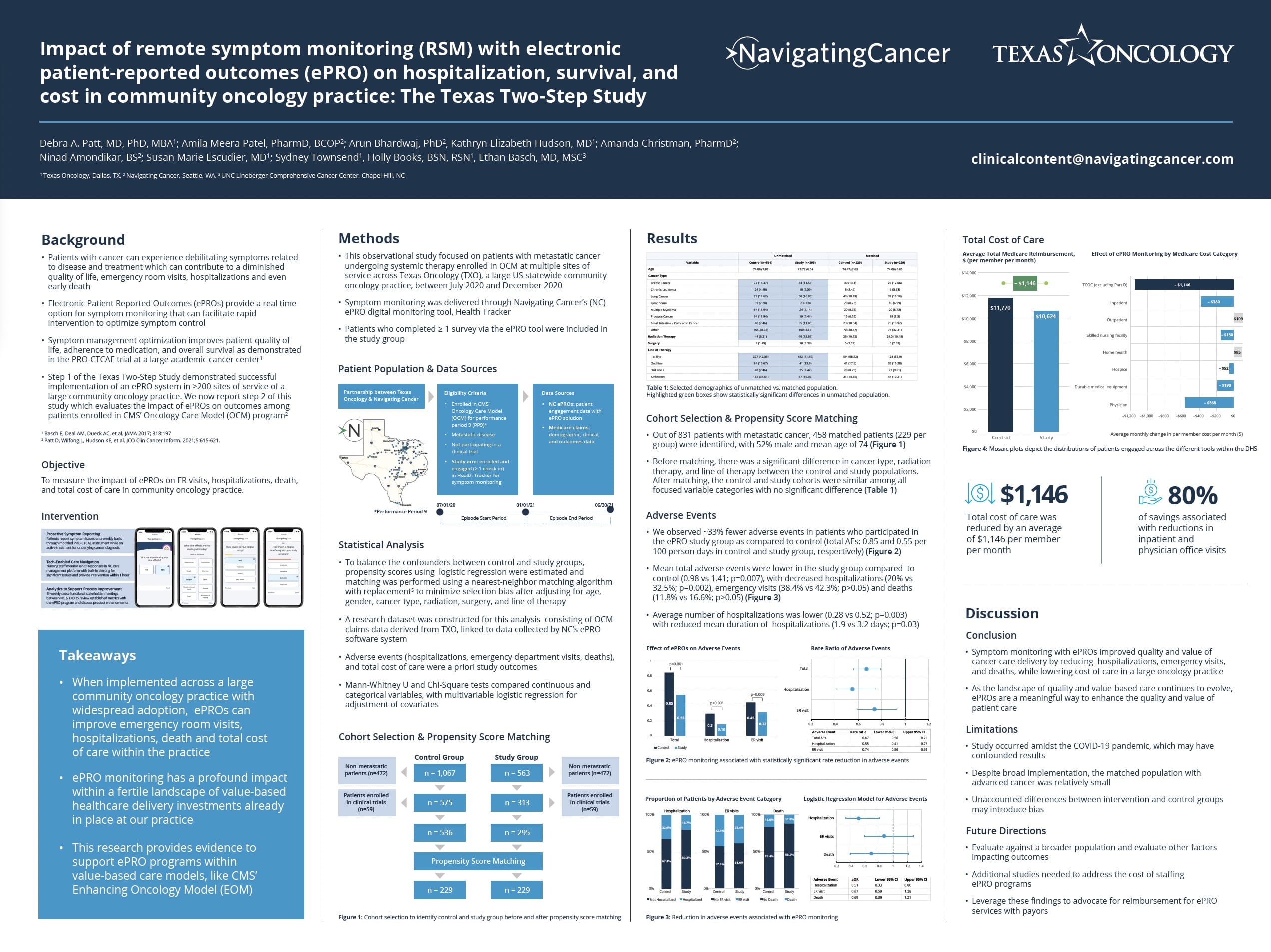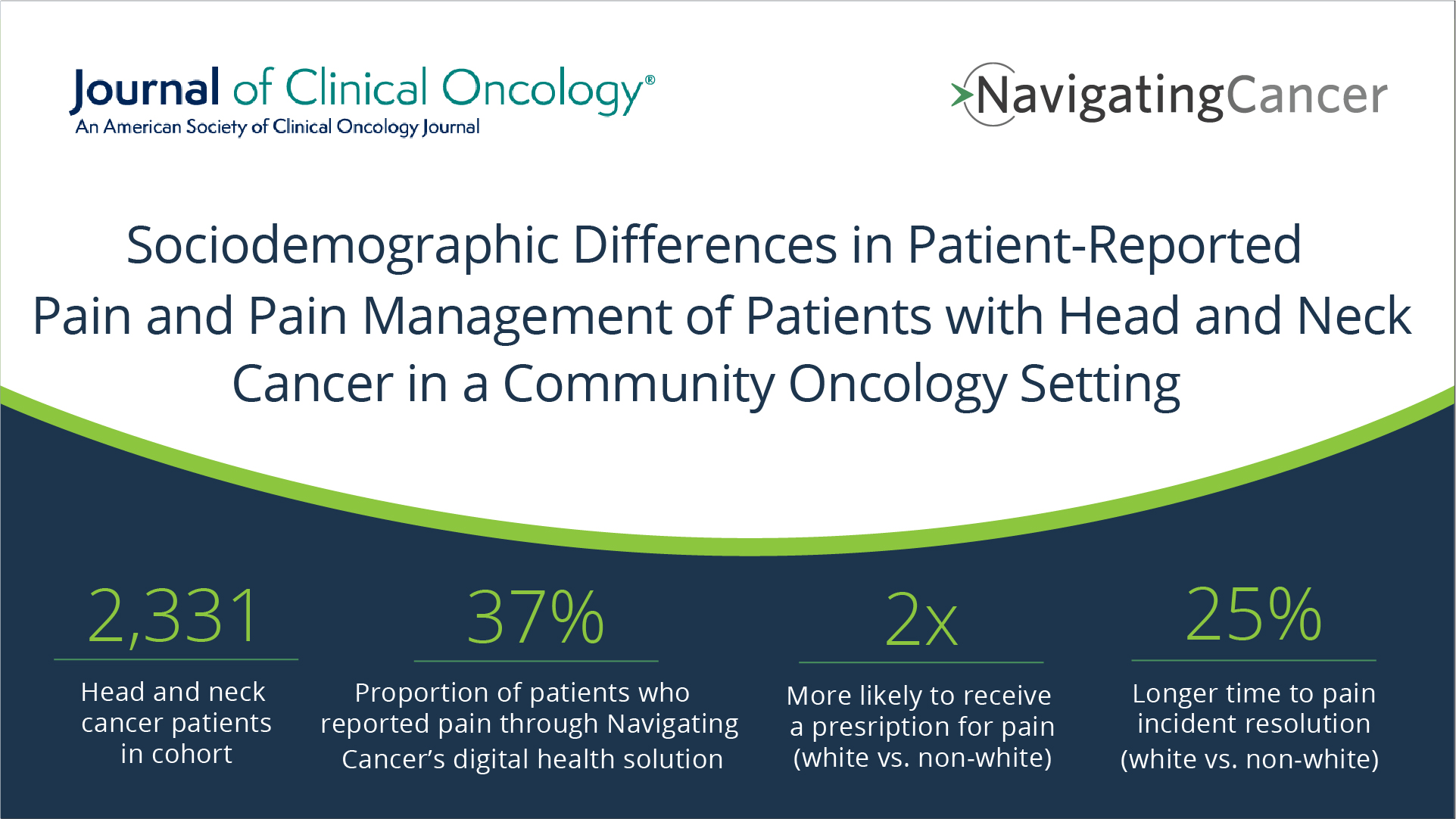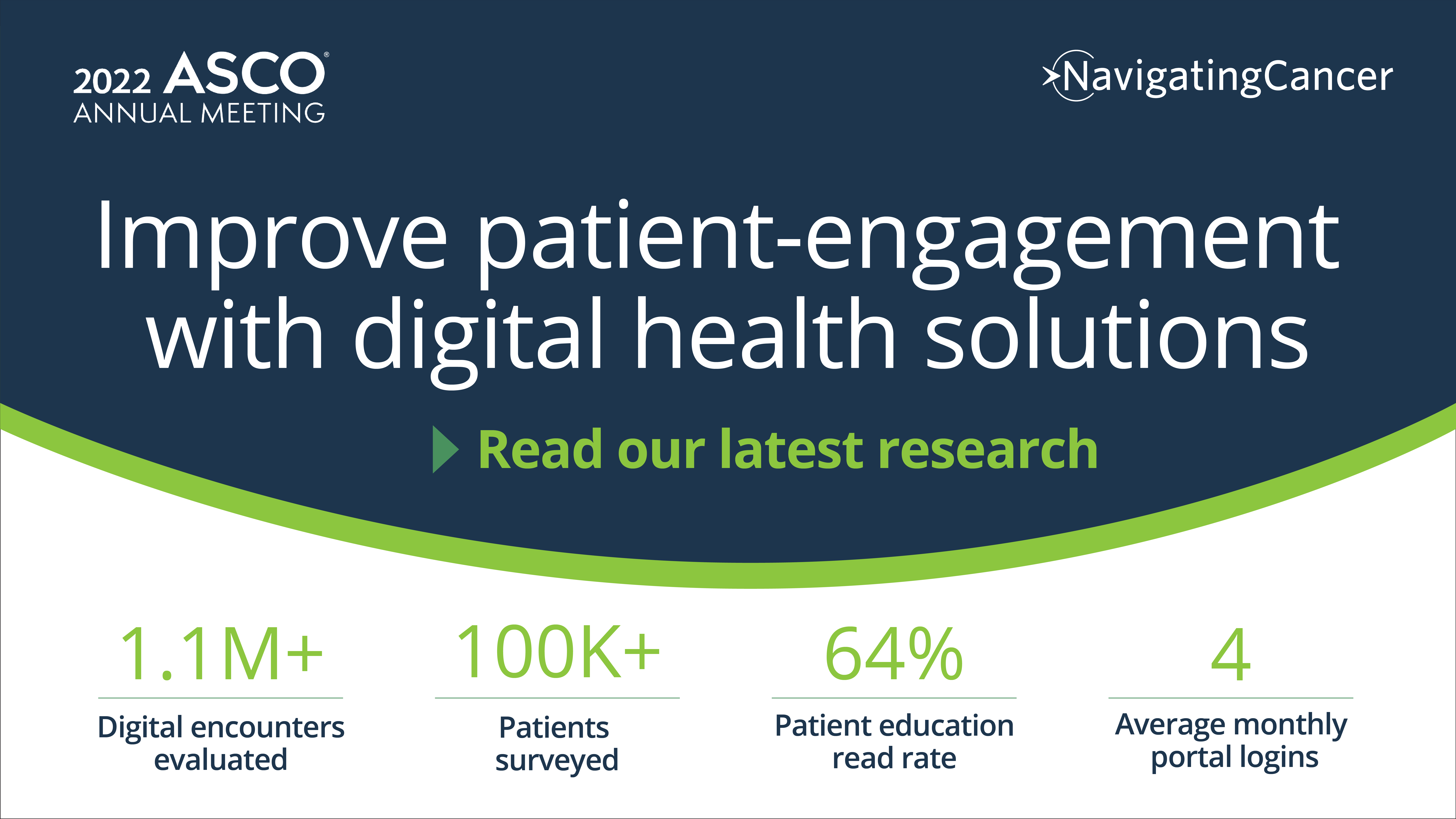Proven Results
Delivering lasting change in oncology, improved partner performance and better patient outcomes.

Reduced
Resolution Times
30%
Clinics using our platform respond more quickly to patient issues and regularly see a 30%+ improvement in incident resolution times.
Reductions in ED Visits
and Hospitalizations
8%
Reduced unnecessary ED visits and hospitalizations by 8% through improvements in remote symptom management.
Increased
Medication Adherence
16%
Clinics & life sciences partners have seen a 16% increase in time on therapy through timely & proactive digital interventions and patient education.
Texas Oncology Implemented Health Tracker to initiate proactive symptom management to improve outcomes.
Optimizing Care Interventions
Impact of remote symptom monitoring with electronic patient-reported outcomes on hospitalization, survival, and cost in community oncology practice: The Texas Two-Step Study
Using Navigating Cancer’s Health Tracker electronic patient reported outcome software, the Texas Two Step Study found a substantial impact on quality of care and associated costs for metastatic cancer patients:
- 39% Reduction in Hospitalization
- $1,146 decrease in monthly cost of care
- 83% of savings from reductions in inpatient and associated physician costs.
- 33% fewer adverse events (hospitalization, ER visits, and mortality)
Sociodemographic Differences in Patient-Reported Pain and Pain Management of Patients With Head and Neck Cancer in a Community Oncology Setting
While there has been extensive research demonstrating racial disparities in pain reporting and management, this is, to our knowledge, the first published research leveraging oncology electronic patient-reported outcomes (ePROs) and nursing care management intervention data that further demonstrate disparities at the point-of-care.
Analyzing patient engagement with digital health tools to facilitate equity across a large statewide community oncology practice.
Digital health solutions can be used to support the cancer patient journey and we demonstrated high utilization in an array of sociodemographic variables in our population. However, tools designed and implemented with different populations in mind to reduce staff burden and lessen the digital divide should be further explored.



